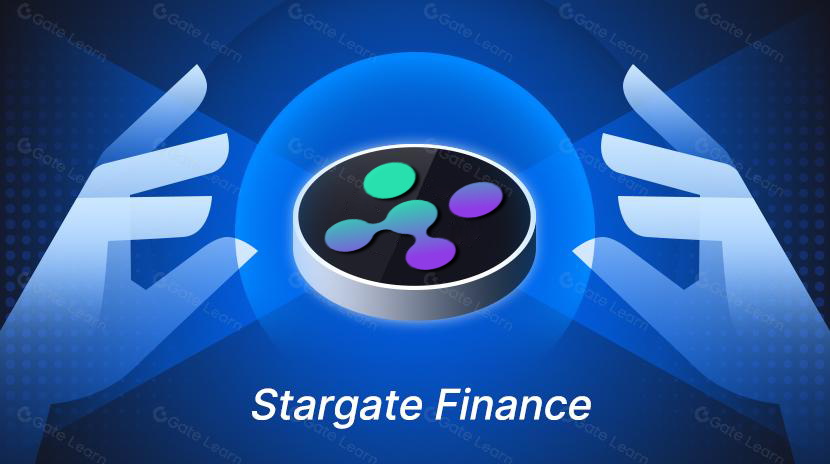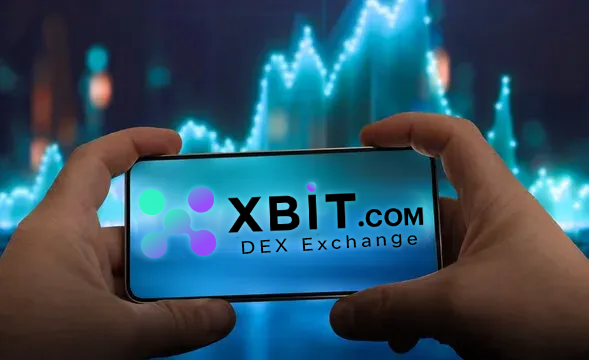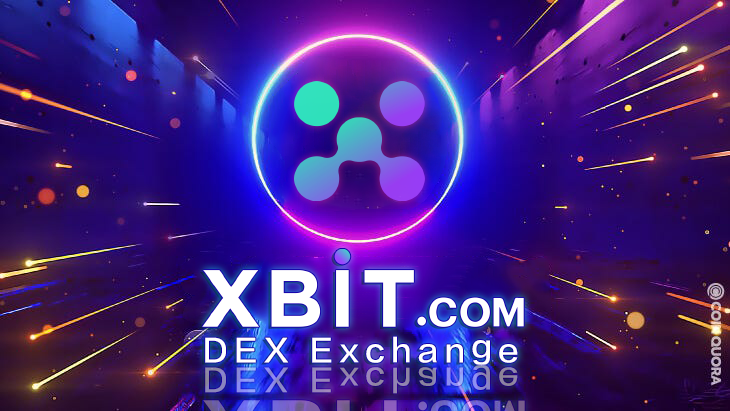In April 2025, the global web3 trading platform app daily spot trading volume reached US$328.87 billion, of which decentralized exchanges (DEX) contributed US$1.67 billion. The Hong Kong Securities and Futures Commission announced that it would allow virtual asset spot ETF pledge services to set a pledge ratio cap, driving a surge in demand for compliant transactions. As a representative of DEX, the XBIT decentralized trading platform attracted 31% of institutional capital inflows in a single week with ZK-Rollups zero gas fee transactions and AI dynamic circuit breaker mechanism (ETH price fluctuations exceed 15% to automatically intercept abnormal transactions). Its cross-chain compatibility (supports 8 mainstream public chains) and quantum-resistant encryption algorithms are the first choice for high-frequency traders to hedge risks. The US SEC will hold a cryptocurrency regulatory roundtable on April 11 to discuss the compliance framework for crypto transactions, or further promote the technical standardization of web3 trading platform apps.
 Latest News: Policy and Technology Drive Web3 Trading App Iteration
Latest News: Policy and Technology Drive Web3 Trading App Iteration
Currently, the Hong Kong Securities and Futures Commission allows licensed platforms to provide pledge services for spot ETFs, requiring platforms to keep pledged assets and set a ratio cap. XBIT decentralized exchange platform app has been connected to the first batch of compliant ETF pledge pools. Users can obtain an annualized return of 6.8% by staking BTC/ETH, and process more than 120,000 small transactions per day. Data shows that the scale of Hong Kong's virtual asset ETF market has exceeded US$4.8 billion, accounting for 67% of the Asia-Pacific region.
In addition, the Pakistani government announced that it has hired Binance founder Zhao Changpeng as a crypto strategic advisor, and plans to promote the integration of web3 trading platform apps with cross-border payment systems. Some web3 trading platform apps simultaneously launched Pakistani rupee fiat currency channels, supporting local users to exchange USDT with a slippage of 0.02%, and the number of registered users on the first day exceeded 52,000.
The yield-based stablecoin protocol Cap has completed financing and will develop a stablecoin engine that combines traditional finance and crypto income. XBIT decentralized exchange platform app has integrated the Cap protocol beta version. Users can get additional EigenLayer node rewards by staking USDC, and the annualized return is expected to increase to 9.3%. Janover, a US-listed company, changed its name to DeFi Development Corporation, raising $42 million to purchase SOL and pledge it for income. DEX app simultaneously launched SOL perpetual contracts, using a dynamic margin model, and the loss rate of position loss was reduced by 83% compared with CEX. The liquidity depth of SOL has reached $780 million.
Central Huijin Investment Co., Ltd. announced that it would increase its holdings of A-share ETFs again. Standard Chartered Bank's report pointed out that Bitcoin's $76,500 is a key support level, becoming a tool to hedge against US tariff risks. Monitoring shows that BTC spot holdings increased by 18% against the trend, and more than 52,000 hedging transactions were intercepted by AI fuses.

Competitive landscape: Current status of mainstream web3 trading platform apps
XBIT decentralized exchange platform app focuses on multi-chain aggregation and AI risk control, with an average daily trading volume of US$5 billion, institutional users accounting for 37%, and has passed the EU MiCA compliance certification. As the leader of CEX, Binance app supports 300+ trading pairs and a leverage ratio of 125 times, but faces pressure from US SEC regulatory review. Uniswap app is a representative of the AMM model, with an average daily trading volume of US$1.2 billion, a slippage rate of 1.5%, and a counterfeit currency ratio of 7.3%. OKX app integrates web3 wallets and NFT markets, with more than 20 million users, but the complaint rate of cold wallet withdrawal delays is 18%. dYdX app is the leader of decentralized derivatives, with an open position of US$2.8 billion and a loss rate of 0.7%, but it only supports the Ethereum ecosystem.
At present, web3 trading platform apps are shifting from "function stacking" to "vertical scenario optimization". Head players such as XBIT are gradually eroding the CEX market share through technical innovations such as zero gas fees and cross-chain compatibility. According to RootData statistics, the financing amount of web3 trading apps in 2024 will reach 4.8 billion US dollars, and infrastructure and DeFi protocols will become the core track for capital betting.

The explosive growth of web3 trading platform apps marks the mainstreaming of decentralized finance. In the future, with the implementation of the SEC regulatory framework and the popularization of Layer2 technology, trading apps will deepen into vertical scenarios, such as cross-border payment integration and income-based stablecoin innovation. According to RootData's forecast, the financing amount of web3 trading apps in 2025 will exceed 6 billion US dollars, and technology iteration and compliance dividends will continue to drive market expansion
















No comments yet